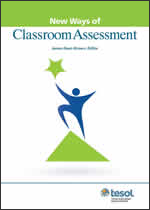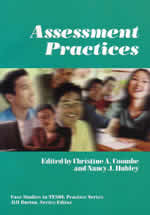U.S. Advocacy Update: The Quarter in Review
 Although spring was off to a slow start in Washington, DC, this year in terms of the temperature, it was a very busy time in terms of education policy issues for the TESOL field. Here’s a brief summary of what has happened over the past few months.
Although spring was off to a slow start in Washington, DC, this year in terms of the temperature, it was a very busy time in terms of education policy issues for the TESOL field. Here’s a brief summary of what has happened over the past few months.
Workforce Investment Act Reauthorization Moves Forward
In early March, the Education and Workforce Committee in the House of Representatives approved the Supporting Knowledge and Investing in Lifelong Skills (SKILLS) Act (H.R. 803), a bill to reauthorize the Workforce Investment Act of 1998 (WIA). Long overdue for reauthorization, WIA focuses on funding and resources for workforce training, with Title II of WIA focused on funding for adult education. (WIA Title II is the primary federal funding vehicle for adult ESL in the United States.) Sponsored by Education and the Workforce Subcommittee on Higher Education and Workforce Training Chairwoman Virginia Foxx (R-NC), the SKILLS Act focuses on streamlining and eliminating duplicative programs.
A similar bill, the Workforce Investment Act of 2013 (H.R. 798), has also been introduced in the House, and is sponsored by Rep. John Tierney (D-MA). As contrasted with the SKILLS Act, this bill seeks to provide much-needed improvements and upgrades to WIA that have been proposed and supported by the adult education field. One of the key elements in the H.R. 798 is the authorization of the EL/Civics grant program, as well as additional improvements for adult ESL—something that is not included in the SKILLS Act.
The committee hearing to vote on the SKILLS Act was quite dramatic, as the Democrats on the Education and Workforce Committee left the hearing in protest over bill. As a result, the SKILLS Act was approved along party lines. A week later, the full U.S. House of Representatives voted to approve the bill along party lines. The Senate has yet to take action on WIA reauthorization.
Because the SKILLS Act fails to include key provisions to support adult ESL, TESOL International Association cannot support the bill. TESOL has issued comments in support of H.R. 798. Copies of TESOL’s comments can be downloaded online.
FY2014 Education Budget Proposal Introduced
Two months late and one month after the implementation of sequestration, President Obama introduced his proposal for the FY2014 federal budget on 10 April 2013. It includes many new initiatives that reflect promises made on the campaign trail and are paid for in large part with recommended tax increases and reforms. For education, the President would spend US$71.2 billion, an increase of US$3.1 billion (4.5 %) over last year’s presequester enacted level. His budget focuses on six priority areas: early learning, improving teaching and learning, school safety and improved environments for learning, career-readiness, making college more affordable, and intensive services for low-income neighborhoods.
Two key proposals in the budget include a new program to offer universal pre-K education programs throughout the United States, plus new and revised teacher quality development grants. Other programs of interest to the TESOL field (Title III of ESEA and Title II of WIA) saw level funding in the budget.
Although the budget proposal suggests level funding for these programs and new funding for others, sequestration—mandatory, across-the-board budget cuts—remains in effect. For the Department of Education, it is estimated the cuts will be about 5%. Because many of the programs that affect K–12 education are forward funded, the cuts will not affect these programs until the allocations that are scheduled for July go into effect—meaning the cuts will affect resources for the 2013–2014 school year. Education advocates are still hoping that some of the effects of sequestration can be rolled back; however, it will literally take an act of Congress for this to happen.
More information on the President's proposed FY2014 education budget can be found at the Department of Education website.
Read TESOL International Association's statement in response to the proposed FY2014 education budget.
Comprehensive Immigration Reform Introduced in the U.S. Senate
After the release of a general framework earlier in the year, a bipartisan group of senators introduced their proposal for comprehensive Immigration Reform the week of 15 April 2013. As a result of the shift in the political landscape, many are hoping that comprehensive immigration reform has a real chance of becoming a reality this year in Washington.
The proposal includes several initiatives that both the President and the bipartisan group of senators have publicly supported, including earned citizenship for undocumented students (aka the DREAM Act), and a pathway to citizenship for other undocumented immigrants. Of particular interest to the TESOL field is the role that English will play in legalization provisions, and what—if any—resources will be authorized to support adult ESL programs to meet the expected increase in demand.
At the time of this writing, analysis of the bill and its impact on the TESOL field continues.
TESOL Blogs
Interested in writing a blog for TESOL?
Contact
Tomiko Breland with your idea or for details.
Check out the latest TESOL Blogs:
|
Unearthing the Secrets of Successful Adult ELLs, by Alexandra Lowe
 Years ago, a social worker friend taught me that the best way to help people tackle difficult challenges was to focus on past instances of success rather than on failure. Success, he told me, was worthy of detailed investigation: What factors contributed to successful outcomes? And how can we encourage more of what has worked well in the past for others who are similarly situated? Years ago, a social worker friend taught me that the best way to help people tackle difficult challenges was to focus on past instances of success rather than on failure. Success, he told me, was worthy of detailed investigation: What factors contributed to successful outcomes? And how can we encourage more of what has worked well in the past for others who are similarly situated?
When I began teaching English as a second language, this advice came to mind. As I watched my adult immigrant students struggle to master our verb tenses or wrap their tongues around our sound system, I decided that it might be useful to investigate how successful adult ELLs went about achieving fluency in English. What were the secrets of their success? What strategies had worked well for them? Read More. |
|
Online Education: Ready, Set, Learn!, by Tara Arntsen
 Perhaps as a teacher you’ve found yourself thinking about how great it would be to go back to school and learn more about different aspects of the field of education, brush up on some of your skills, or even learn something entirely new. Or not. Either way, it’s not a bad idea. Let me introduce Coursera and edX, which are both websites that offer free courses from top-notch universities around the world. Read More. Perhaps as a teacher you’ve found yourself thinking about how great it would be to go back to school and learn more about different aspects of the field of education, brush up on some of your skills, or even learn something entirely new. Or not. Either way, it’s not a bad idea. Let me introduce Coursera and edX, which are both websites that offer free courses from top-notch universities around the world. Read More.
|
|
Global Resources in ESP: Two books on Professional Communication, by Kevin Knight
 Hello, ESPers worldwide! Hello, ESPers worldwide!
I am more excited than ever about the future of ESP because there is a growing need worldwide for communication skills in professional and academic settings. At TESOL 2013, I came across a wonderful book at the Routledge booth:
S. Schnurr (2012). Exploring Professional Communication: Language in Action. Abingdon, England: Routledge.
If you are new to the field of professional communication, I highly recommend it.
At TESOL, I find that many members have acquired expertise in training and in obtaining stakeholder agreement, which is necessary for creating and implementing training programs for many different types of organizations. Read More. |
TESOL Bookstore

Now It’s Easy to Assess Your English Language Learners
TESOL Press Books on Assessment Can Help
 New Ways of Classroom Assessment, revised
New Ways of Classroom Assessment, revised
James Dean Brown, Editor
In this revised edition in the popular New Ways Series, teachers have once again been given an opportunity to show how they do assessment in their classrooms on an everyday basis. This collection of ideas was contributed by teachers whose aim was clearly to help their students. Consequently, the activities are thoroughly integrated into the language teaching and learning processes. More than 100 activities enlighten both students and teachers about the effectiveness of their language learning and teaching but do not stand out as different, formal, threatening, or interruptive in the classroom.
 Assessment Practices
Assessment Practices
Christine Coombe and Nancy Hubley, Editors
For language educators, teachers, and testers, these studies analyze assessment design, implementation, and review for classrooms, formal tests, programs, curricula, and self-assessment in global scenarios.
Toll Free: 888-981-0041
E-mail: tesol@brightkey.net